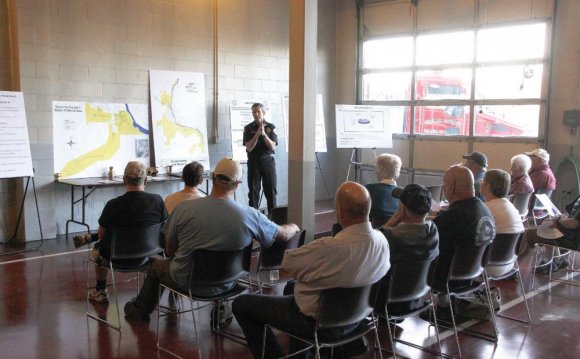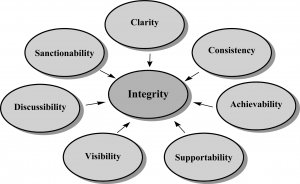
 In recent years, the demand for public relations officer in both private and public sectors has gone up considerably. It can be a very interesting career option where one can get exposure to press conferences, organizing events, communication budgeting, reputation management, etc. If you want to find your niche in the dynamic domain of PR, read on to understand the responsibilities and required skill sets of this field.
In recent years, the demand for public relations officer in both private and public sectors has gone up considerably. It can be a very interesting career option where one can get exposure to press conferences, organizing events, communication budgeting, reputation management, etc. If you want to find your niche in the dynamic domain of PR, read on to understand the responsibilities and required skill sets of this field.
According to the Institute of Public Relations, USA, “Public Relations is a deliberate, planned and sustained effort to establish and maintain mutual understanding between an organization and its public.” A public relations officer (PRO), also known as ‘Media Specialist, ’ is the spokesperson of an organization. His or her role is to convey the policies and interests of the organization to the public through various modes of media. For an organization, ‘public’ refers to the existing customers, potential customers, shareholders, financiers, media, government bodies, employees, etc. The need for a PRO can be found in almost all sectors, including private companies, advertising agencies, financial organizations, government agencies, charities, etc.
As a PRO has to be dedicated 24/7 to protect the interest of a company, it can be a very demanding job. However, it is also a lucrative and interesting means of making a career. If you are ready to take up the challenge, here are a few points that will help you in understanding the public relations officer’s job better.
Reputation Management:
 The prime function of a public relations officer is to create, maintain and enhance the reputation of an organization. It is the responsibility of the PRO to promote the people, products, services or solutions of the establishment he works for.
The prime function of a public relations officer is to create, maintain and enhance the reputation of an organization. It is the responsibility of the PRO to promote the people, products, services or solutions of the establishment he works for.
Goodwill Creation:
A seasoned PRO should not only manage and maintain reputation, but should also continuously work towards creating and ameliorating the goodwill of the organization. This will help in creating a favorable public image of the organization by strengthening its credibility.
Crisis Management:
One of the most crucial and difficult duties of a public relations person is crisis management. Mostly, the need for such communication arises when the stock position of the company is not favorable, mitigation of losses is required, during a takeover situation, the organization decides to dissolve a joint venture, there is a change in the senior management, etc. At times, there may be a conflict of interest between the public and the company because of some issues related to its policies or product. A PRO should be capable enough to deal with such problems, without causing damage to the reputation of the company.
PR Strategies and Campaigns:
A PRO should constantly look out for opportunities to present the organization in a positive light. He needs to come up with different PR strategies that will lead to easy acceptance and appreciation of any new move by the organization. When a company has to launch a new product, announce a new scheme, enter a new MOU or JV etc.; it is the job of the PR official to make arrangements to promote a new corporate move. He has to plan promotional strategies, keeping the target audience and desired result in mind.
Press Conference:
Whenever an important decision of the organization is to be made public, the PRO must arrange a press conference. He has to invite the press beforehand, make arrangements at the venue, manage catering, audio-visual facilities, stage set-up, ambiance etc. Also, he has to prepare a press kit for the journalists, which includes a press release, providing details of the announcement. After the press conference, he has to request the press to ask their questions. He should be very careful and clever in answering their queries.
 Preparing Media Plan:
Preparing Media Plan:
A PRO must prepare an event-wise media plan, detailing and shortlisting the journalists from publications and electronic media for gaining substantial visibility. Other media platforms like advertising, bill boards, social media, etc. are also to be considered. This is an important decision to be taken by the PRO as the quality and quantity of publicity mileage can be entirely based on the media plan.
Coordinating Interviews:
Most of the senior management professionals of an organization give interviews to newspapers, magazines, websites and television channels. The PRO of the company will have to coordinate the communication between the senior management and the journalists. To decide and discuss where the interview is to be conducted, the briefing points, the probable list of questions, etc. before the interview rest on his shoulders.
Communication Budget:
It is important that a separate budget is set aside at the beginning of every financial year for various public relations activities. The PRO has to prepare a communication plan at the beginning of the year, giving details of the activities along with the budget allotted to them individually. Contingency plan for emergency communication should also be done in the budget.
Cordial Relations:
A PRO needs to take special efforts in maintaining cordial relations with the clients, potential clients, media persons, top management of the company, employees, etc. He should have knowledge about every single news regarding the organization.
Excellent Communication:
It is necessary for a PR officer to have excellent oral and written communication skills. He must be well versed in corporate jargon as he has to draft speeches for the senior management, and might have to address the press himself. Apart from this, he has to prepare publicity brochures, press releases, newsletters for employees, handouts, company magazines, etc.
Effective Marketing:
The PRO should have sound sales and marketing skills that will help in effective promotion of the products and services. Besides, it also helps if he is a creative person and is able to come up with new and innovative ideas to attract the public. He may have to plan mass media films and videos to promote or enhance the sales of a particular product. He may even have to assist in market research.
Internal Communications:
He has to work closely with the internal communications team, for devising a objective bound communication for employees located at one or several locations. He has to play an instrumental role in communicating a single message throughout the organization. This can also impact the employee engagement effectively.
Media Coverage: His job not only involves getting media coverage, but also includes following its tone and nature. He should also evaluate and analyze the coverage to understand the impact of the communication.














